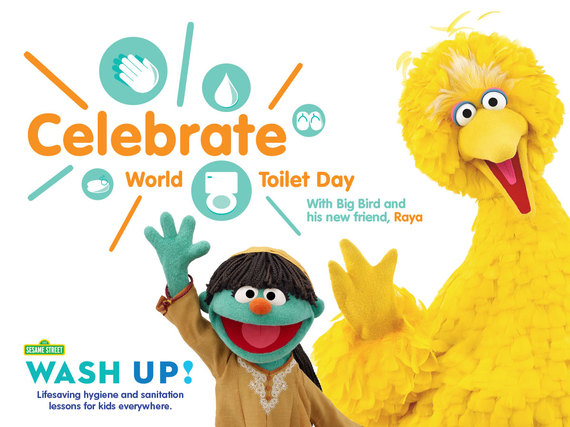"The one thing all children have in common is their rights. Every child has the right to survive and thrive, to be educated, to be free from violence and abuse, to participate and to be heard. "
Secretary-General Ban Ki-moon
As we mark World Toilet Day today, I am struck by the relevance of UN Secretary-General Ban Ki-Moon's on Universal Children's Day - due to be celebrated tomorrow. Every child has the right to survive and thrive, but for far too many children, this right is denied in the simplest of areas, particularly in the provision of clean, safe, and child-friendly water, sanitation, and hygiene (WASH) services such as toilets.
2.4 billion people across the world lack access to improved sanitation, with nearly 1 million people who have to defecate in the open. The health ramifications of open defecation on children are worrying. Open defecation is one of the main causes of diarrhoea, which is the third biggest killer of children under the age of five in sub-saharan Africa. Children who survive diarrhoea are weakened and as a result, more vulnerable to under-nutrition, stunting and pneumonia. For adolescent girls, the search for a private place to defecate can be fraught with danger, exposing them to increased risk of sexual assault. As adolescent girls begin to go through puberty, menstruation and the lack of private toilets at school means they are forced to skip school during this time. This adds up to significant proportion of school missed, limiting the ability to Let Girls Learn.
Health literacy from a very young age can help children and adolescents learn more about their bodies, the need for improved sanitation, and the importance of hygiene. Engaging with children about their health can empower them as adults to make decisions and take action that can protect their health and the health of their future children. At Wellbeing Foundation Africa (WBFA), we have embarked on community health education initiatives targeted to young families through our antenatal education programmes that can be delivered by midwives, because we believe in the value of health literacy delivered at key moments of a person's life. Our WBFA Personal Health Records and our #MaternalMonday campaigns are also rooted in this philosophy by offering health information about maternal, newborn, and child health through multiple mediums.
Health education for children should also be delivered through multiple channels, reaching them through engaging, interactive, and fun methods as seen through Sesame Street's WASH UP! Initiative. Sesame's WASH UP! Initiative aims to address this by providing access to meaningful sanitation and hygiene education. Raya - a character dedicated to sanitation issues - is pioneering conversations for children about clean water, hand washing with soap, and proper toilet use through easy-to-share reminders that they can teach to family, siblings, and friends. Programming like Sesame takes a culturally sensitive approach to education but offers a global perspective and is situated within global best practices. Whether you are a child in Kwara, Kansas, or even Kent, Sesame Street's Raya offers the right to universal high-quality, health education.
As we celebrate Universal Children's Day tomorrow, we should ruminate on Ban Ki-Moon's words and seek to protect the rights to children to survive and thrive. The future of millions of children and their universal right to survive and thrive depends on their access to clean and safe toilets, and #WeCantWait.
